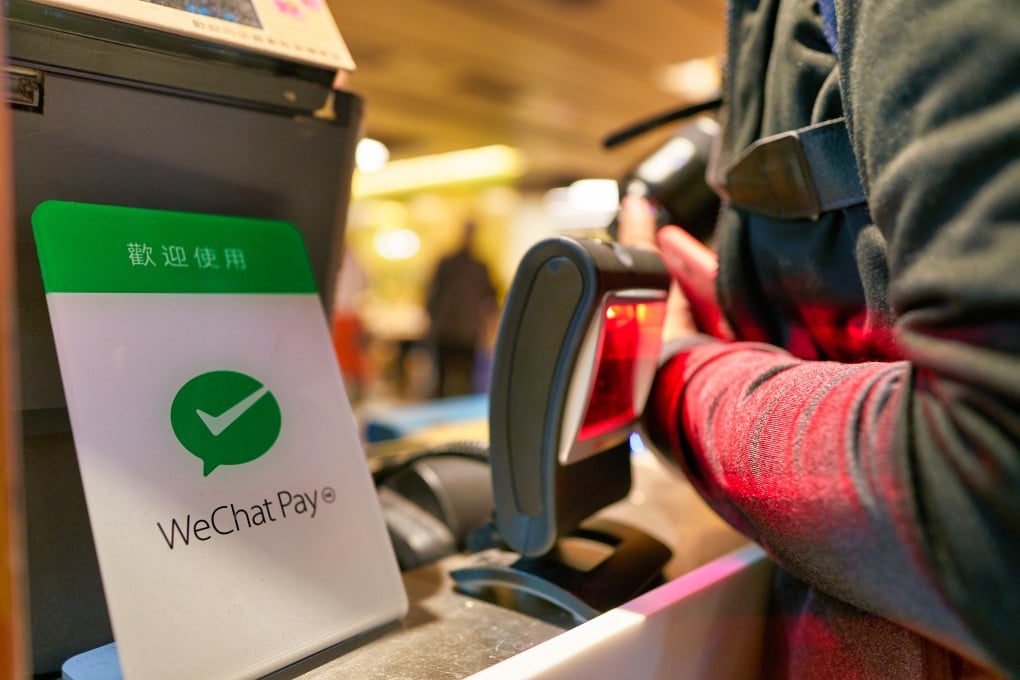China’s e-CNY app adds WeChat Pay as ‘express payment’ option after Alipay, as sovereign digital currency’s adoption remains slow
- WeChat Pay as an express payment option is now available to e-CNY users covered in the pilot scheme, which includes 26 cities
- Mobile payment giants Alipay and WeChat Pay have both committed to help promote the country’s sovereign digital currency

The latest express payment option, called Weixin Pay on the mainland, is now available to e-CNY users covered in the ongoing pilot trials, which includes 26 cities and 5.6 million merchants across the country, amid the sovereign digital currency’s sluggish state of adoption.
“As the two mobile payment giants [in China], WeChat Pay and Alipay are expected to provide powerful support for the application and promotion of e-CNY through its express payment system,” said Hu Hao, a researcher at Beijing-based research institute Kandong.
Hu indicated, however, that the two mobile payment platforms would be “affected to a certain extent”, as they “adapt to how the digital yuan is processed”.

Both Alipay and WeChat Pay have earlier committed to help promote the country’s digital fiat money. Alipay activated the e-CNY payment option on its platform in May 2021, while WeChat Pay followed suit in January 2022.
